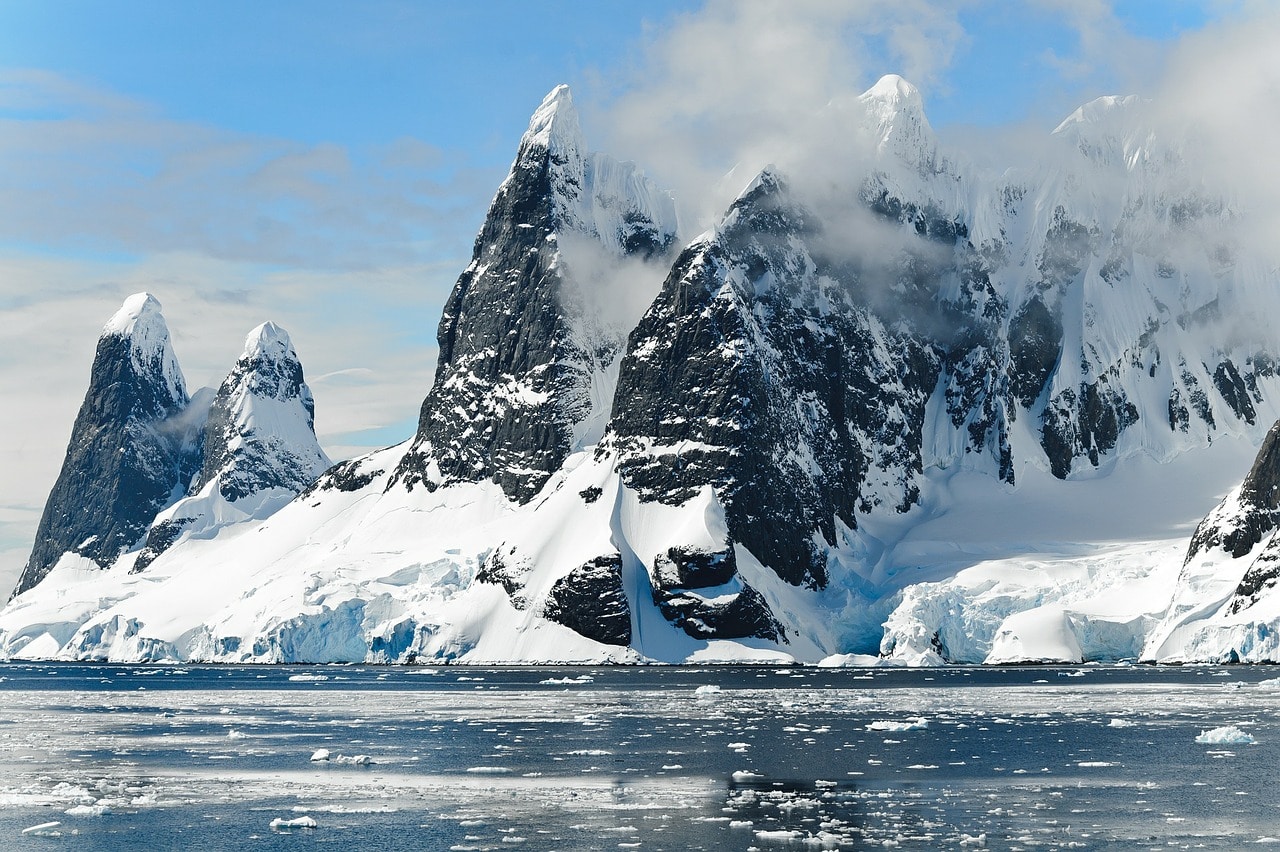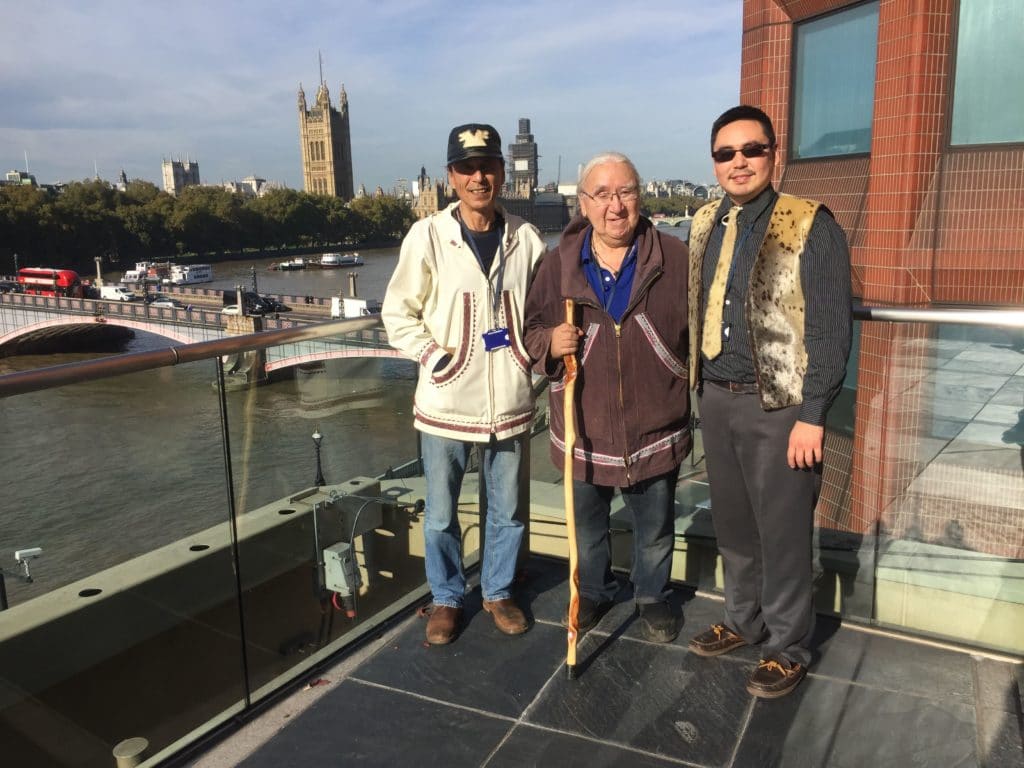- Blog
- Oceans
- Arctic Indigenous Voices
- Arctic Indigenous Voices made a difference on polar shipping in 2018 – and 2019 looks promising too
Arctic Indigenous Voices made a difference on polar shipping in 2018 – and 2019 looks promising too
by Verner Wilson II, senior oceans campaigner

Donate Now!
Your contribution will benefit Friends of the Earth.
Stay Informed
Thanks for your interest in Friends of the Earth. You can find information about us and get in touch the following ways:
2018 was a breakthrough year for Arctic conservation work at the International Maritime Organization (IMO). I wrote partly about it in my previous blog. Aside from obtaining internationally recognized routing measures and shipping areas to be avoided (ATBA) in the Bering Sea, IMO also moved forward with regulations to ban the use of Heavy Fuel Oil (HFO) in the Arctic. The United Nations shipping agency also moved to regulate climate-change causing greenhouse gas emissions in the international shipping industry, which is one of the largest emitters of carbon and other atmosphere pollutants. I look forward to continuing that type of work into 2019. And there will be plenty of opportunity for that, as there are a number of IMO subcommittee meetings that will consider pollution reduction and prevention measures. The people who I believe made some of the most significant differences in this work in 2018 were able to come to IMO with me last fall.
It’s not every day that elder Alaska Natives are heard and respected by leaders from around the world. Historically Alaska Natives were discriminated against. But not last October, when my respected Alaska Native elders George Edwardson from Utqiagvik and Delbert Pungowiyi from Savoonga traveled to London, England to tell the world about their decades of life in the Arctic.
It’s not every day that elder Alaska Natives are heard and respected by leaders from around the world.
Eager ears from every corner of the earth listened to their words of wisdom that week, when they attended the IMO’s Marine Environment Protection Committee (MEPC) meeting as part of the delegation of my organization, Friends of the Earth. Representing the Native Village of Savoonga and Inupiat Community of the Arctic Slope (or ICAS, a consortium of eight Native villages on Alaska’ Arctic Slope), they told the international delegates from over 173 nations about why it is important to protect the fragile Arctic environment. They told them their stories of growing up hunting and fishing on the Arctic ice. They spoke of their people who have depended on the bountiful marine wildlife that has sustained them for thousands of years. Whales, walrus, polar bears, seals and other Arctic wildlife can’t speak to international leaders, but my two respected elders who have been sustained by these creatures could — and they sure did! They spoke for the wildlife and fragile environment our indigenous people depend on amidst increased shipping in the region.
Heavy fuel oil — the dirtiest fuel that can possibly be burned for shipping — is very persistent in the Arctic, harming Indigenous communities and marine ecosystems.
Those who are being harmed deserve a voice. pic.twitter.com/VEQitXFwoC
— Friends of the Earth (@foe_us) October 20, 2018
Every time they eloquently spoke during that busy week, I heard not just them — but also myself. I heard my ancestors, and future generations of Alaska Native conservation leaders. I believe that our Native values and desire to protect our home allow us to speak collectively as one. Thus, our Arctic Indigenous voices rise as one. I heard our collective voices as my elders Delbert and George spoke at the many events we participated in that week. I was surprised that even for their older ages (Delbert is in his late 50s and George is in his 70s), they had such dedication to tell their story. And the stamina to carry them through from dusk until dawn each day after traveling over 24 hours to get there. And it was an assiduous week for us. Together, we spoke to dozens of international leaders at two events: at the IMO plenary itself, and at an evening reception at United Kingdom’s Parliament building. We woke up at 5am one day to take a two-hour train ride to Southampton, UK where we spoke to Carnival cruise company’s top executives at their UK headquarters as we urged them to take responsibility in the Arctic by not using HFO. We also spoke to over a hundred students at Imperial College during an evening event, and reporters throughout the week. My elders George and Delbert were eager and ecstatic to talk to everyone they could to help protect the people and places where they are from.
If there is one thing I learned from that week, it was that I could count on my elders and people to continue their strong and passionate advocacy for our home. In 2018, Arctic indigenous voices stood up and began engaging in IMO deliberations. The Alaska Federation of Natives, Inuit Circumpolar Council, Nunavut Tunngavik Incorporated (or NTI, a Native organization in Nunavut, Canada) and the government of Greenland all passed statements urging IMO to ban the use of HFO. In 2019 other issues will be discussed, including the regulation of other pollutants like greywater, initiatives for ships to avoid marine mammals, and more. As we move into 2019, I look forward to continuing this work at the IMO’s Pollution, Prevention and Response (PPR) subcommittee meeting in February 2019, as well as the Marine Environment Protection Committee (MEPC) in May. Despite the long trip to London and busy weeklong meetings, I know it will be worth it. My elders George and Delbert reminded me of why our work is worth it.

